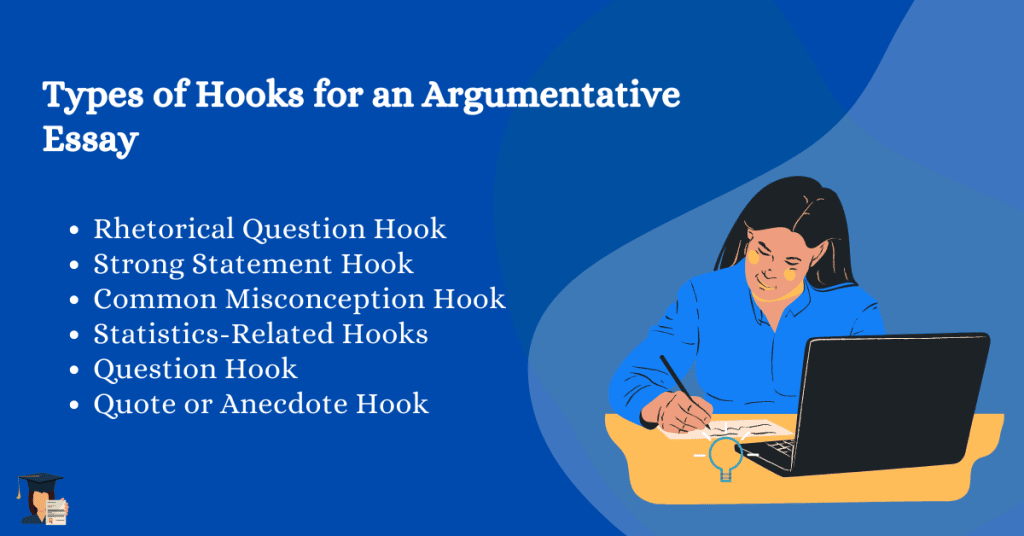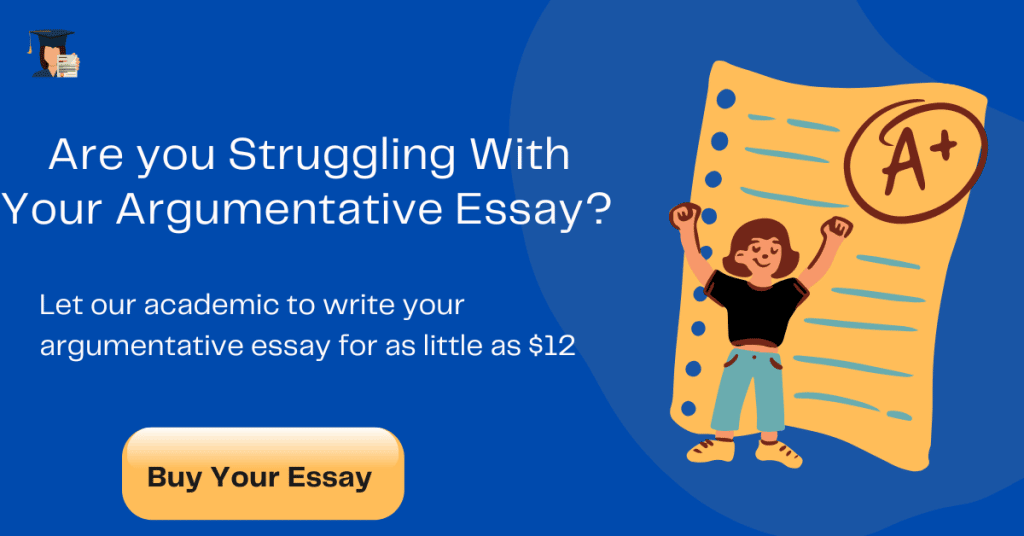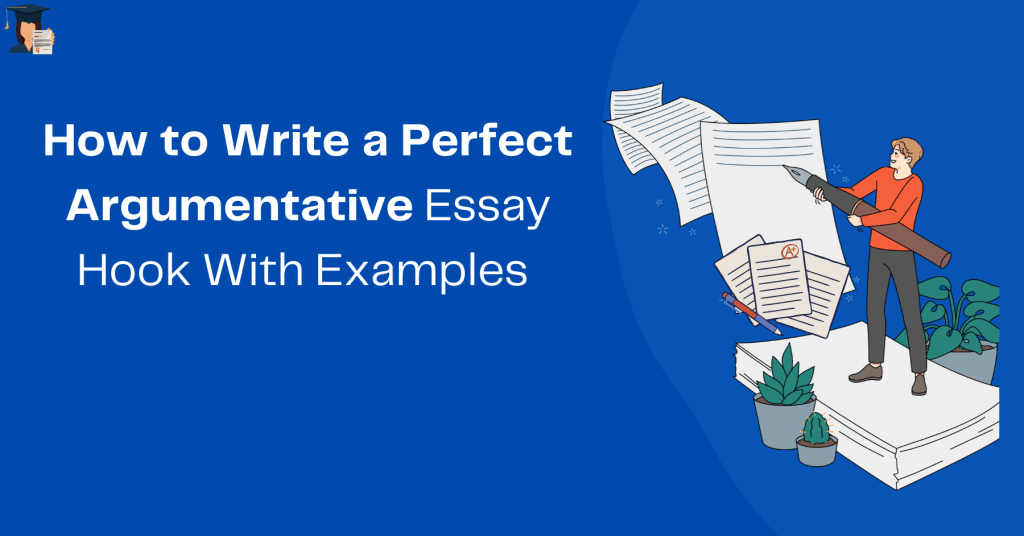In this article, we will explore how to write an effective hook for an argumentative essay in the introduction paragraph of your paper. We will also explore various argumentative essay hook examples and what makes them effective and compelling hooks.
What is the purpose of a hook in an argumentative essay?
When writing an argumentative essay for an assignment, it is important to include a hook in an essay introduction to capture the reader’s attention and encourage them to continue reading. The hook should be related to the topic of the essay and aim to pique the reader’s interest, especially since the essay will be submitted to an instructor for grading.
A hook in an argumentative essay interests the reader in the topic being discussed and invests in the writer’s argument. This is especially important when the essay is being submitted for an academic paper, as the writer’s goal is to persuade the instructor to accept their position on a controversial issue. A strong hook sentence can also help establish the writer’s credibility and expertise, which is important for persuasive arguments.
Types of Hooks for an Argumentative Essay
Here are some types of essay hooks for argumentative essays
Rhetorical Question
This type of hook poses a question to the reader that does not necessarily require an answer but is intended to spark their interest in the topic being discussed. It effectively engages the reader and encourages them to think more deeply about the issue.
Example: “Did you know that more than 60% of teenagers report feeling stressed out by their daily lives? What if there was a way to reduce that stress and help them succeed in school?”
Strong Statement Hook
This hook makes a bold statement or assertion that captures the reader’s attention and draws them into the essay. It is often used to make a clear and direct argument that sets the tone for the rest of the essay.
Example: “The death penalty is a barbaric practice that has no place in modern society. It is an affront to human rights and a stain on the justice system.”
Common Misconception
This hook challenges a common assumption or belief many people have about the discussed topic. By highlighting this misconception, the writer can make the reader more interested in the topic and more receptive to the writer’s argument.
Example: “Many people believe that video games are a waste of time and have no educational value, but recent studies have shown that playing video games can actually improve cognitive function and problem-solving skills.”
Statistics-Related Hooks
This argumentative essay hook uses statistics or data to capture the reader’s attention and support the writer’s argument. Statistics can be a powerful tool for making an argument, as they can provide evidence to back up the writer’s claims.
Example: “Did you know that in the United States, more than 75% of people arrested for drug offenses are black or Latino, even though these groups make up only a small percentage of the population?”
Question Hook
This hook asks a question intended to get the reader thinking about the topic and considering the writer’s argument. It can be an effective way to engage the reader and encourage them to keep reading.
Example: “What would happen if we stopped treating mental illness as taboo and started talking about it openly and honestly?”
Quote or Anecdote Hook
This hook uses a quote or anecdote to capture the reader’s attention and provide context for the writer’s argument. It can effectively create an emotional connection with the reader and make them more invested in the discussed topic.
Example: “As Mahatma Gandhi once said, ‘The greatness of a nation and its moral progress can be judged by how its animals are treated.’ It is time for us to start treating animals with the respect and compassion they deserve.”

How to brainstorm and draft potential hooks for an argumentative essay
As a student with an argumentative essay assignment, it’s important to brainstorm and draft potential hooks for your essay to engage your reader and make a strong impression. Here are some steps you can take to brainstorm and draft potential hooks:
- Start by reviewing your topic and thesis statement. Ensure you clearly understand the issue you are discussing and your position in your essay.
- Consider your audience. Think about who will be reading your argument essay and what types of hooks might be most effective in capturing their attention and engaging them in your argument.
- Brainstorm a list of potential hooks. Consider using rhetorical questions, strong statements, statistics, quotes, anecdotes, or other hooks. Don’t worry about making them perfect at this stage – just focus on generating a range of ideas.
- Evaluate your hooks. Once you have a list of potential hooks, evaluate each to see which is the most effective. Consider whether the hook is relevant to your argument, whether it is attention-grabbing, and whether it sets the right tone for your essay.
- Choose your hook. Based on your evaluation, choose the most effective hook in introducing your argument and engaging your reader. Remember that a strong hook can distinguish between a reader continuing to read or losing interest, so choose carefully.
- Draft your hook. Write your chosen hook as the opening sentence or sentences of your essay. Ensure it is clear, concise, engaging, and leads smoothly into the rest of your argument.
How to write a hook for an argumentative essay
We have looked at how to brainstorm and draft potential hooks. Now let’s dive into writing the actual hook.
Your hook should be relevant to the topic at hand and your thesis statement
Your hook should be relevant to the topic at hand and your thesis statement: The hook should be related to the topic of the essay and should lead into the thesis statement of the essay. It should be a clear and direct statement that sets the tone for the essay and gives the reader an idea of what to expect. The hook’s relevance to the thesis statement helps to make a strong and effective argument.
Use Simple and direct language
The language in the hook should be clear and easy to understand, using simple words and avoiding jargon or technical terms that the reader may not be familiar with. The aim is to make the hook accessible and interesting to a wide range of readers, not just those who are already knowledgeable about the topic.
Your hook should arouse interest and curiosity
The hook should capture the reader’s attention and make them curious about the topic. It should be attention-grabbing, memorable and thought-provoking so the reader is intrigued and motivated to continue reading. Arousal of interest and curiosity makes the reader invested in the topic and more receptive to the writer’s argument.

Refining your hook for an argumentative essay
Refining your hook is an important step in the writing process, as it ensures that your hook is engaging and effective. To refine your hook, you should read it over several times, making any necessary changes or revisions to make it more attention-grabbing and interesting. Consider how your hook relates to your thesis statement and whether it is a clear and direct statement that sets the tone for the essay. Get feedback from others and make any necessary changes to refine your hook and make it more compelling.
Examples of effective hooks for an argumentative essay
Here are some essay hook examples in different argumentative essay topics and what makes them effective
Politics
Hook: “In the age of misinformation and ‘fake news,’ can we really trust the media to give us an accurate picture of political events?”
This hook is effective because it challenges a common assumption about the role of the media in politics and encourages the reader to think more deeply about the issue.
General
Hook: “What would you do if you discovered that your favorite clothing brand used child labor to make their products?”
This hook is effective because it appeals to the reader’s sense of morality and encourages them to consider a real-world issue relevant to their lives.
Society & culture
Hook: “In a world becoming increasingly diverse and multicultural, how can we promote understanding and respect for different cultures?”
This hook is effective because it addresses an important issue and encourages the reader to consider how they can make a positive difference in their community.
History
Hook: “The saying goes, ‘History is written by the victors.’ But what about the voices and experiences of oppressed or marginalized?”
This hook is effective because it challenges a common assumption about the nature of history and encourages the reader to consider the importance of including diverse perspectives in studying history.
Social Media
Hook: “Is social media really bringing us closer, or is it driving us further apart?”
This hook is effective because it addresses a current and relevant issue and encourages the reader to consider the impact of social media on their own lives and relationships.
Technology
Hook: “As technology advances at an unprecedented rate, are we losing touch with our humanity?”
This hook is effective because it challenges the reader to consider the potential negative consequences of technological progress and encourages them to think critically about the role of technology in our lives.
Health
Hook: “In a society that values thinness and ‘perfect’ bodies, how can we promote positivity and acceptance for all?”
This hook is effective because it addresses an important issue affecting many people and encourages the reader to consider how they can make a positive difference in their lives and communities.
Education
Hook: “In a world where technology is changing how we learn, do traditional classrooms still have a place in education?”
This hook is effective because it addresses a current and relevant issue and encourages the reader to consider the potential impact of technology on the future of education.
Sports
Hook: “Is winning really everything in sports, or is there more to the game than just the final score?”
This hook is effective because it challenges a common assumption about the purpose of sports and encourages the reader to consider the role of sports in our lives beyond just competition and winning.
Conclusion
Crafting an effective hook for your argumentative essay is crucial for engaging your reader and making a strong impression. The hook should be relevant to the topic and your thesis statement, use simple and direct language, and arouse interest and curiosity. It’s important to brainstorm and draft potential hooks that will capture the target audience’s attention and set the tone for your argument.
Consider your audience, the topic you are discussing, and the purpose of your argument, and choose a relevant and engaging hook. Refine your hook to ensure it is clear, concise, and effective and leads smoothly into the rest of your argument. By crafting a strong and effective hook, you can set the stage for a persuasive and well-supported argument in your essay.
FAQs
To start a good hook for an argumentative essay, you should brainstorm and draft potential hooks relevant to the topic and your thesis statement. Consider using rhetorical questions, strong statements, statistics, quotes, anecdotes, or other types of hooks that will capture your reader’s attention and make a strong impression from the beginning of your essay.
Good openers for an argumentative essay include using a strong and attention-grabbing hook, introducing the topic and providing background information, and stating your thesis statement clearly and concisely. Depending on the topic and purpose of your essay, you may also choose to include a brief overview of your main points or arguments.
A hook sentence for an argumentative essay is a statement or question that captures the reader’s attention and introduces the topic and argument of the essay. It is the opening sentence or sentence of the essay and sets the tone for the rest of the argument. A hook sentence can be a strong statement, a provocative question, a relevant statistic, or an engaging anecdote, among other types of hooks.



